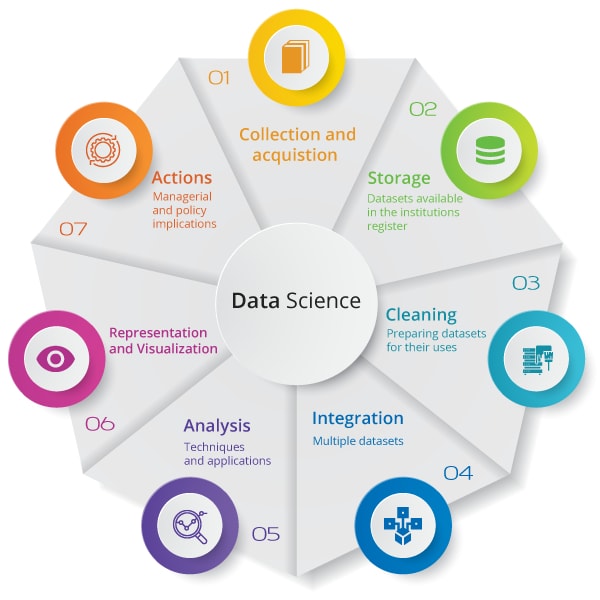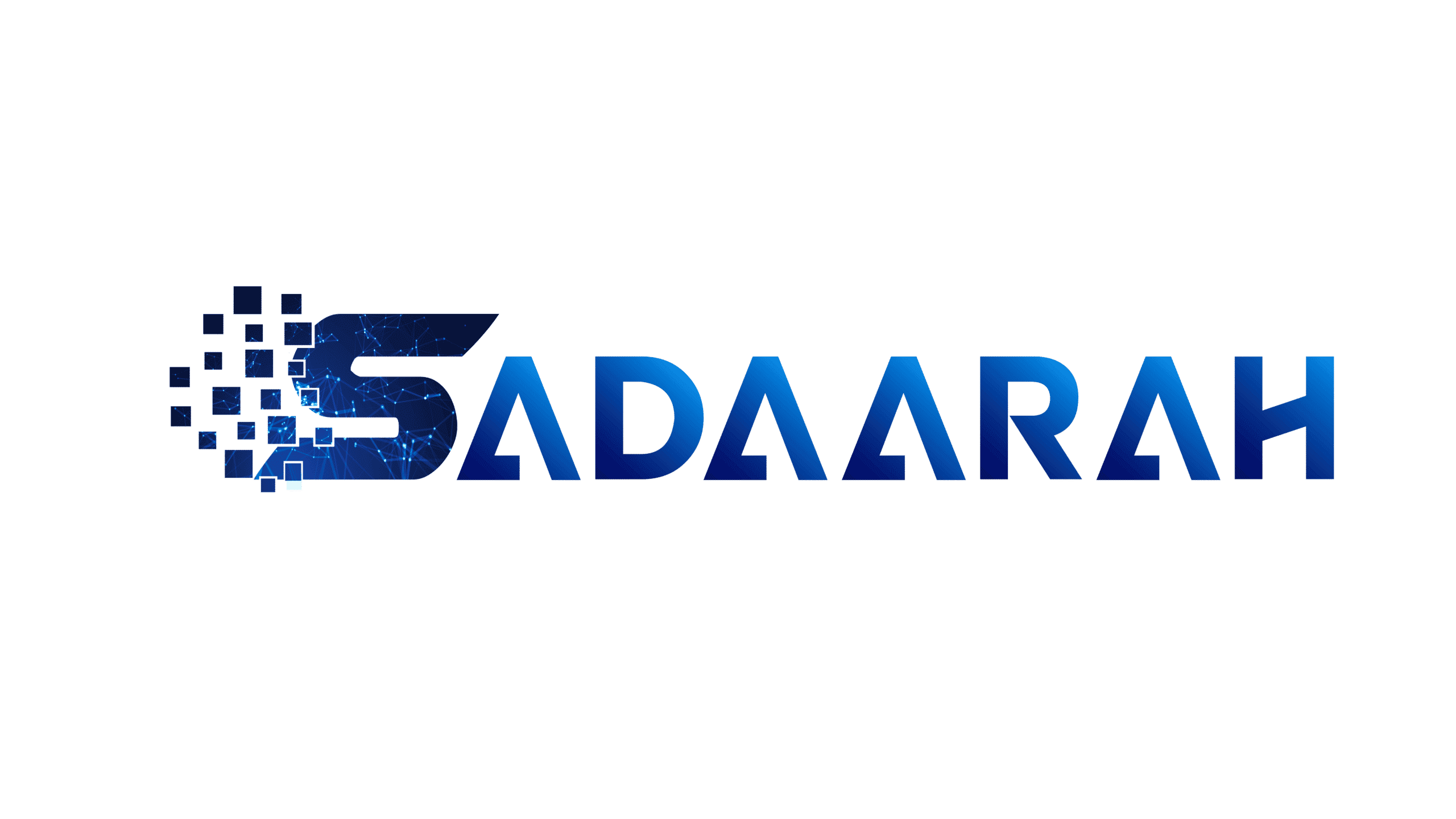No products in the cart.
Data Science
Data science is an interdisciplinary area that extracts knowledge and insights from both organized and unstructured data using scientific methods, algorithms, processes, and systems. It integrates methods for data analysis, interpretation, and visualization from domain expertise, computer science, statistics, and mathematics. This helps businesses solve complicated issues, spur innovation, and make well-informed decisions. Finding patterns, trends, and relationships in data to produce predictions and actionable insights is the goal of data science, which includes a wide range of tasks like data collection and preprocessing, exploratory data analysis, statistical modeling, machine learning, and data visualization.

Types of Data Science
- Descriptive Analytics: Involves summarizing historical data to understand past trends and patterns.
- Diagnostic Analytics: Focuses on identifying the root causes of certain events or outcomes by analyzing historical data.
- Predictive Analytics: Utilizes statistical models and machine learning algorithms to forecast future trends and outcomes based on historical data.
- Prescriptive Analytics: Recommends actions to take based on predictive models to optimize outcomes or mitigate risks.
- Machine Learning: Involves creating algorithms that can learn from and make predictions or decisions based on data without being explicitly programmed.

Features

Key Features of Data Science
The goal of data science, as a whole, is to derive useful conclusions from data using a variety of methods and strategies. In order to identify underlying patterns, it includes procedures including data gathering, cleansing, and exploratory analysis. Data scientists are able to categorize data, detect abnormalities, and make predictions by using statistical analysis and machine learning techniques. Good visualization strategies make it easier to understand complicated data and share findings with stakeholders. Model performance is improved via feature engineering, while robustness and generalization are guaranteed by thorough assessment. Results are contextualized and brought into line with company goals by domain expertise. In the end, data science is an iterative process that is always changing to accommodate changing business requirements and find fresh avenues for creativity and judgment.
Benefits
Benefits of Data Science
Many advantages are provided by data science in a variety of fields. Organizations may obtain important insights that support efficient operations, stimulate innovation, and facilitate well-informed decision-making by utilizing the power of data. Businesses are able to better understand customer behavior and preferences, enhance goods and services, and optimize operations thanks to data-driven insights. Additionally, data science makes predictive analytics easier, enabling businesses to better estimate demand, foresee trends, and manage risks. Furthermore, data science enables companies to improve resource allocation, customize marketing strategies, and personalize client experiences. All things considered, utilizing data science skills may result in major competitive benefits, helping businesses to stay ahead in the fast-paced, data-driven market of today.





